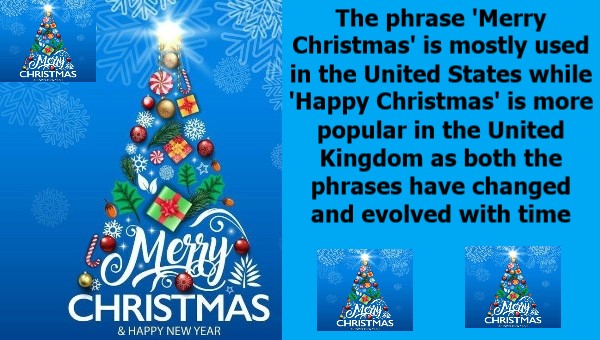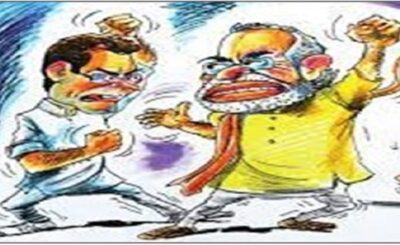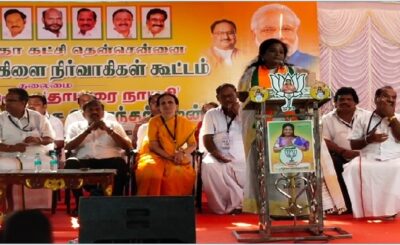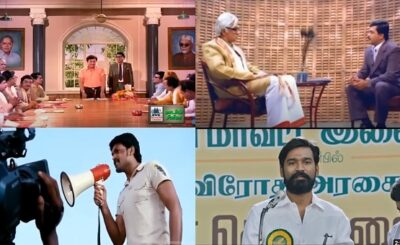Christians all over the world are celebrating Christmas festivities with fervour. The greetings of “Merry Christmas” are resonating across the globe from metropolitan cities to remotely located rural settings.
The year-end festive spirit across the world is enveloped in Christmas celebrations. It marks the birth of Jesus Christ, observed on December 25. It is one of the biggest religious holidays, which is toasted with get together, preparing dishes, decorating Christmas trees, and attending parties. The celebration begins on December 24 evening, called Christmas Eve. But on this day, individuals greet each other with the phrase ‘Merry Christmas’ and not ‘Happy Christmas’. However, the “Happy” Christmas and “Merry” Christmas has created some sort of nomenclature controversy.
In some European countries festivities have their own flavour. A special Christmas Eve meal “Heiligabendessen” (This ceremony takes place on Christmas Eve just before the “gros souper”.) became a special Christmas Eve meal. It became a cherished tradition along with gift exchange in different parts of Germany. Whereas, Scandinavian countries celebrate Christmas with “Julafton” (Christmas Eve celebrations), lavish feasts, family games, and Santa Claus visits.
However, on this day, individuals greet each other with the phrase ‘Merry Christmas’ and not ‘Happy Christmas’. The reason behind the phrasing is that people often use the word ‘Happy’ during the new-year, holidays, birthdays, and anniversaries. But for Christmas, they use ‘Merry’ instead of ‘ Happy’.
It seems people often use the word ‘Happy’ during the new year, holidays, birthdays, and anniversaries. But for Christmas, they use ‘Merry’ instead of Happy’. The fact why Christmas is greeted as ‘Merry Christmas’ and not ‘Happy Christmas’ lies with the traditional saying that has been continuing for centuries.
Mostly, ‘Merry Christmas’ delivers an emotional and unrestrained connotation of celebration whereas the ‘Happy Christmas’ signifies a conservative and reserved celebration.
In England, every year, Queen Elizabeth II of England used to address the people of the United Kingdom on Christmas day with ‘Happy Christmas’.
Rumour suggests that she preferred ‘Happy’ over ‘Merry’ because the term ‘merry’ is associated with a sense of boisterousness and intoxication. Some say that the word ‘merry’ is related to the rowdiness of the underprivileged classes, whereas ‘happy’ is based on a higher-class connotation especially because it is associated with the royal family wishing ‘Happy Christmas’.
Leaders in Great Britain encouraged Christian followers to be ‘happy’ instead of ‘merry’. The reason is based on what the language signifies – ‘happy’ is an emotion, while ‘merry’ is a behaviour.
Moreover, the bishop John Fisher in a letter to Henry VIII’s chief minister Thomas Cromwell wished “Merry Christmas”. The letter dates back to at least 1534 in London.
In the 16th century, the phrase ‘We Wish You a Merry Christmas’ was mentioned in the Charles Dickens novel ‘A Christmas Carol’ in the year 1843, which was a big reason for its popularity since then.
In the same year, the phrase started to show up in commercial Christmas cards. Victorian Christmas has defined many traditions and customs of Christmas and this is one of them.
The term ‘merry’ has become so popular and intrinsically associated with Christmas now that just hearing it takes us to Christmas celebrations!
Actually, “merry” word owes its genesis to a mixed German and medieval English word and both “happy” and “merry” mean the same cheerful or gleeful. The linguists subscribe to the view that the word “merry” came into existence in the 16th century. But it gained popularity during 18th and 19th centuries.









